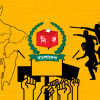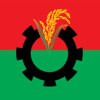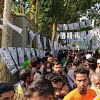Parties fret over govt initiative to publish their stance online

The interim government's initiative to publish the positions of individual political parties on reform proposals on a website has led to a sense of unease within the political establishment.
While the government's push for transparency has been praised by many, some politicians worry that it could expose their parties to public criticism, especially with the elections approaching.
The government's plan, announced at a meeting on February 15, aims to make the process transparent by posting each party's stance on key proposals online.
"The issues on which political parties have agreed or disagreed will be posted on the website. If anyone has amendments, they can submit them too. Our responsibility is to present your wishes to the nation," said Chief Adviser Muhammad Yunus.
He explained, "One party may agree to 98 out of 100 proposals. Another may agree with only two. We will decide our next steps later based on this."
Led by the chief adviser himself, the National Consensus Commission held its first meeting on Saturday to discuss reform proposals. Around 100 representatives from 27 parties and alliances, including BNP and Jamaat-e-Islami, participated.
With a view to ensuring transparency and public engagement in reaching a consensus on reforms, it was suggested that the proposals be published on a website. Yunus assured that the commission's role is to present recommendations, not to impose decisions.
However, the government's push for transparency has caused discomfort among some political leaders.
They say the initiative is unclear about how consensus will be achieved and worry that it might subject them to public criticism.
For instance, if a party opposes popular proposals like barring MPs from becoming the prime minister while remaining the party chief, or nomination quotas for the youth, it could invite backlash from voters.
A senior leader from the BNP-led alliance, wishing not to be named, said that for example, a proposal limiting a person to two terms as the prime minister was rather popular. "Which party could oppose it? If they do, and the government publishes it, they will face public scrutiny. For some proposals, public opinion has already formed, making it difficult for parties to oppose them without providing explanations."
Mujibur Rahman Manju, chairman of AB Party, said the government should list all common proposals from different parties and focus discussions only on areas of disagreement. "This would reduce complexity and accelerate progress."
Zonayed Saki, chief coordinator of Ganosamhati Andolon, stressed the need for further dialogue on the process. "These matters will be clarified through discussions with the government," he added.
Meanwhile, a senior leader from the 12-party alliance, speaking anonymously, expressed frustration. "This process feels like pressure is on political parties. It seems the responsibility for implementing the reforms is being placed entirely on us."
On Sunday, Jamaat Nayeb-e-Ameer Syed Abdullah Mohammad Taher said, "We welcome all positive decisions. Once the commission makes its final recommendations, we will start preparing for the election."
However, despite these concerns, some leaders see value in the initiative. They believe it could help voters understand party priorities ahead of the national election. "The initiative is promising, and the government has pledged not to impose decisions. But reforms cannot be reduced to a multiple-choice exercise. Reaching a consensus requires debate, rationale, and dialogue," said Saiful Haque, president of Revolutionary Workers Party.


 For all latest news, follow The Daily Star's Google News channel.
For all latest news, follow The Daily Star's Google News channel. 






Comments